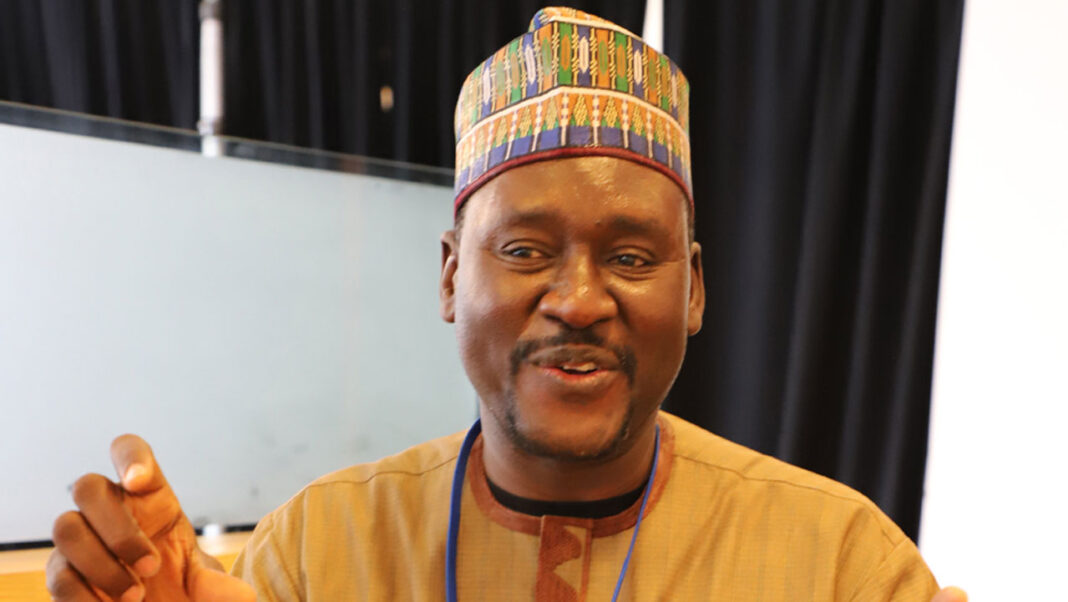It was an exciting week for the World Bank, the International Monetary Fund (IMF), and partners at the just-concluded Annual Meetings in Washington DC. Nigeria staged an investment roadshow, held important meetings with partners and investors while non-governmental organizations participated in crucial sessions on the sidelines. Auwal Musa Rafsanjani, a Nigerian civil society leader and Executive Director of the Civil Society Legislative Advocacy Centre (CISLAC), joined the conversation, calling for urgent reforms in global financial governance and Africa’s debt management systems. He warned that the continent faces a worsening fiscal crisis that demands urgent actions on both domestic and international fronts. In this interview with MOYOSORE SALAMI, he shares his thoughts on these critical issues.
You joined the global conversations at the World Bank/IMF Annual Meetings in Washington DC, focusing on debts, tax reforms, and Artificial Intelligence (AI). What was your major takeaway from the session?
The primary takeaway for me, which also aligns with the civil society’s ongoing discussions, is the pressing issue of debts and debt sustainability. This is vital since many African countries, especially Nigeria, struggle under heavy debt burdens. We noted that it is unsustainable for Nigeria to continue accumulating debt, particularly when most loans are not directed towards genuine development. Instead, they often fund consumption, lacking accountability. This troubling debt profile affects Nigeria and many other African nations, highlighting the urgent call for transparency and even debt cancellation for loans that weren’t used for the public good.
How can a nation address its needs amid the pressing demand for massive infrastructural development?
Nigeria is rich in natural resources; the focus should be on effectively harnessing these resources while eliminating waste. We don’t need to depend on reckless borrowing from multilateral organizations. We have urged institutions like the IMF and World Bank to reconsider their persistent lending to African nations. Additionally, it’s crucial for civil society to be involved in monitoring these debts, as many legislative bodies in Africa lack understanding of the debt arrangements imposed by executive branches. Such oversight is critical, particularly as citizens face rising living costs with no subsidies in healthcare, education, or agriculture. These conditions make survival increasingly difficult for the populace.
A strong economy drives investments; how would you rate the state of the Nigerian economy at the moment?
Nigeria’s economy has become overly reliant on the oil and gas sector, while other nations have diversified through technology. The rampant issues of oil theft and illegal mining cripple any potential growth from this sector. Additionally, infrastructure deficits, particularly in energy and transportation, create barriers for investors. Our security challenges further exacerbate these problems, making Nigeria less attractive for potential investment.
The G-24 has expressed a strong position regarding the debt crisis affecting many developing nations. They argue that the debt structure is skewed, trapping these economies without exit strategies. Do you agree with this assessment?
Absolutely. The current debt situation in developing countries represents a structural injustice that perpetuates poverty and dependency. African nations have failed to curb financial leakages, with illicit financial outflows amounting to billions yearly that could otherwise fuel development. If corruption is adequately addressed, the need for continual borrowing would diminish. Unfortunately, most Nigerian loans contribute to recurrent expenditures rather than productive investments that could foster growth and job creation.
It’s concerning that we even resort to commercial banks for loans, incurring higher interest rates. The G-24 is correct; Africans are disproportionately affected by corruption and have not implemented systems to combat issues like money laundering and financial misconduct. This drainage of resources meant for development leads to failed investments in infrastructure, healthcare, and education.
You mentioned the need for reforms at the IMF and World Bank processes, echoing sentiments from the American government regarding returning to their original mandates. Do you share this view?
Yes, civil society has long advocated for transparency and accountability within these institutions. Lack of equal representation in decision-making processes necessitates a comprehensive review of their founding documents. Currently, these institutions cater primarily to a select few nations, leaving African nations feeling like they are merely endorsing decisions without meaningful input. This situation is unacceptable; African countries should not have to plead for assistance given their vast resources.
Regarding infrastructure, you’ve also emphasized the importance of AI and emerging technologies. Given that developing countries only account for about 26% coverage as highlighted by the IMF, how equipped is Nigeria—and perhaps the Sub-Saharan region—to leverage the economic potential of AI?
African nations—including Nigeria—must continuously invest in education, science, and technology. Without the necessary knowledge and skill, we cannot actively engage with advancements in AI. It’s vital to prioritize quality, accessible education so that citizens can acquire the skills necessary to harness technological developments. Sadly, education is becoming increasingly inaccessible in Nigeria, creating a significant barrier to progress. The neglect of top-tier education leads to underperforming universities without adequate research facilities.
Compare this to developed nations, where investment in education is high and innovation thrives. In contrast, our public educational institutions languish while elites choose foreign universities for their children, allowing local institutions to degrade. For Nigeria to catch up, we must advocate for proper financing of education and development. By focusing on these areas, we can address our deficits in health, agriculture, and technology, ultimately pushing for a more robust growth trajectory.
Overall, if we neglect financing for sustainable development and persist in prioritizing reckless spending, we will remain stuck in a cycle of borrowing, draining our potential for true economic progress.



